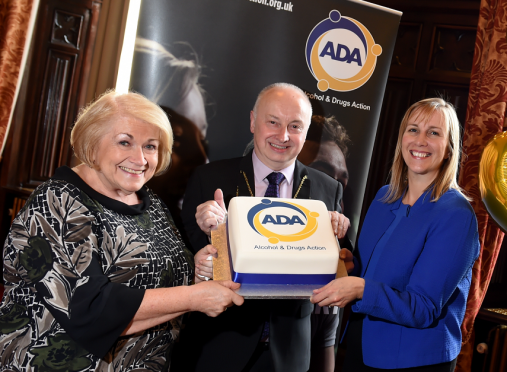An Aberdeen charity has celebrated 30 years of saving and changing lives of north-east people battling substance abuse.
Since 1986 Alcohol and Drugs Action (ADA), formerly known as Drugs Action, has been supporting communities all across Aberdeen and Aberdeenshire and assisting individuals with their addictions to drink and drugs.
Originally founded as a charity to combat glue sniffing, the organisation has over the last three decades adapted itself to deal with each new wave of illicit substances that have plagued communities across the region.
From heroin and the threat of HIV in the 1990s, through to the threats presented by dangerous legal highs and cocaine over the last 15 years, ADA has helped thousands of people struggling with drugs and alcohol and their families to get their lives back on track.
Yesterday the charity celebrated its anniversary with a special party at the Town House, attended by the ADA’s staff and some of the many people it has supported over the years.
Luan Grugeon, the chief executive officer of ADA, said: “Drugs Action was born in response to a local need that was unmet at the time, with glue sniffing, and then in the 90s there was a massive epidemic of injecting heroin across Scotland, and there was a huge fear that there would be an outbreak of HIV as a result across the country – which lead to us investing in our needle exchange service.
“As we developed, we also recognised the need to develop a better understanding of the needs of young people and children affected by these issues, and we created a programme of support for them and family members.”
The charity renamed itself Alcohol and Drugs action earlier this year to reflect the large amount of its clientele that it assists for alcohol-related issues.
In the past year alone, ADA has assisted 2,500 people in overcoming their problems with drink and drugs.
Mrs Grugeon added: “It’s an exciting time for the charity, but we’ve got a lot of challenges ahead of us.
“We’ve got a really skilled and committed team in place, but there are concerns over the future of funding and the impact that austerity is having on our communities, which means that more people will need our support in the future.”
